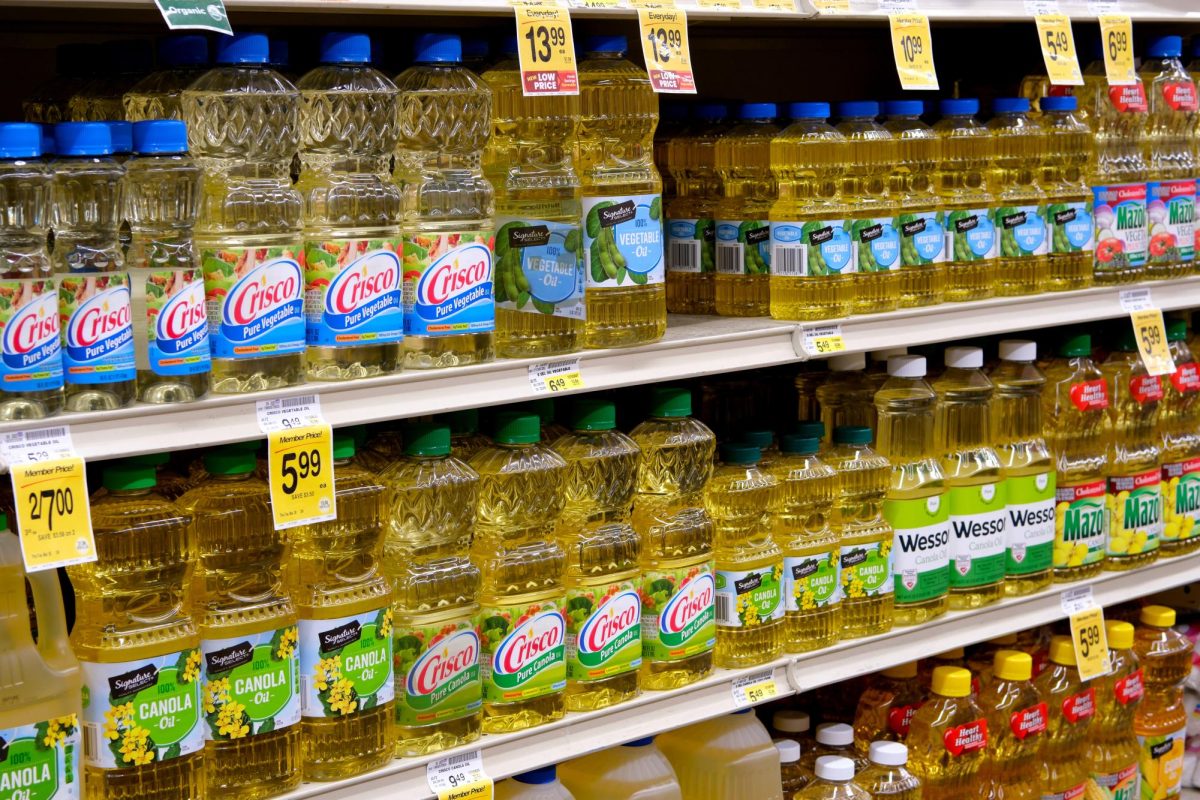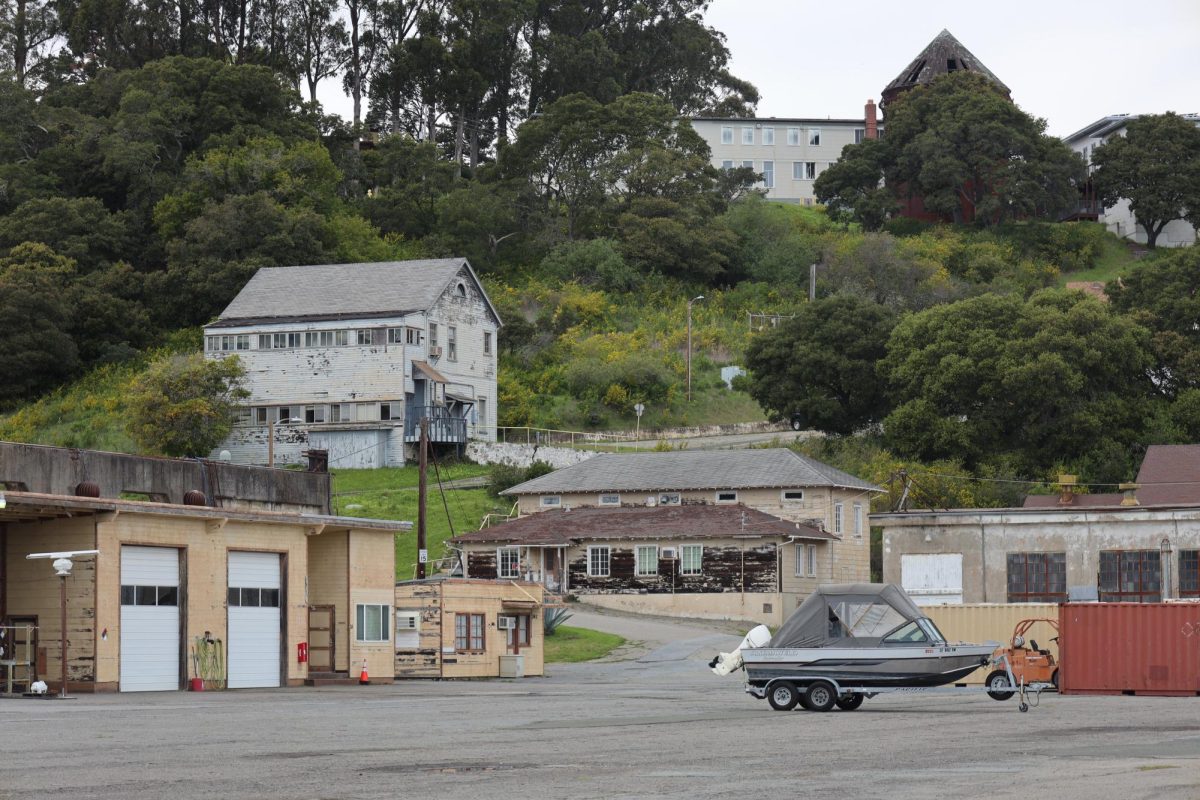Everyone eats. Most people cook. Unless you make the conscious decision to only steam, bake or boil your food, you’re probably cooking with some kind of oil or fat. Most people know to avoid simply pouring hot grease straight down the sink, but knowing how to properly dispose of it is less common knowledge. So, what should you do?
When you see that pool of oil sitting on the bottom of the pan, it can certainly be tempting to take it and pour it down the drain. However, the improper disposal of cooking oil in the sink can create fatbergs, which are rock-like masses of waste that can burst pipes and cause sewage floods, ultimately affecting both cities and the natural environments surrounding them.
Luckily, there are a couple of different ways you could go about properly disposing of cooking oil, each with varying levels of environmental friendliness. Admittedly, the most environmentally conscious methods do take the most effort, but there’s a spectrum between recycling every last drop of grease and pouring it directly down the drain.
Although the devil on your shoulder might occasionally rear his ugly head and tell you to take the easy way out, ignore him and utilize one of these more environmentally conscious methods of disposal instead.
COMPOST IT
Composting is one of the methods that the San Francisco Public Utilities Commission recommends, and it’s the best option for small amounts of oil that can be soaked up with some paper towels. If you’re dedicated to composting but are producing larger quantities of oil, you can store it in a container and dispose of it over time.
Tim Shaw, chef instructor at SF State’s Vista Room restaurant, doesn’t often use large amounts of oil when cooking at home, but still composts on the rare occasion he does decide to deep-fry.
“I wouldn’t pour a gallon into my compost, but I’d save it and put in a couple cups every week until it’s gone,” said Shaw. “Like you do if you have a lot of boxes, break them up and put them in the recycling and get rid of them slowly over time.”
Since 2009, San Francisco has mandated that waste is separated into trash, recyclables and compostables. This makes it easy for San Franciscans to compost their oil, but this isn’t the case in every city. In the last decade, only nine states have enacted legislation that focuses on separating compostable materials from other garbage.
SF State student Daniel Ripalda recalls his family throwing oil-soaked paper towels in the trash before moving to the city.
“Where I lived primarily, we never really did have a sufficient garden to maintain a compost,” said Ripalda.
If you’re able to compost your oil, it’s a relatively easy method of disposal and can even be beneficial to compost piles. A study from May 2023 — performed in tandem by livestock researchers from the National Agriculture and Food Research Organization in Japan, and a grad student from the University of Tokyo — measured the benefits of adding used cooking oil to compost piles. As compared to mainstream composting, the study found that compost with added cooking oil produced less harmful ammonia gas and returned 21.5% more nitrogen — a valuable nutrient to plants — to the soil.
REUSE IT
Reusing leftover cooking oil is another one of SFPUC’s recommendations. After letting the oil cool down in the pan, it can be strained to remove any leftover bits of food. The strained oil can then be reused for the next meal that you plan on sautéing or frying. As is the case with many forms of recycling, it’s a decision that benefits both your wallet and the environment.
After a Zoom demonstration of how to make arancini—fried risotto balls—Chef Shaw had a couple quarts of oil left over on the stove. He rarely uses that much — “It was like $20 worth of oil; I’d rather spend that on a good bottle of wine,” he said — so he plans to make that money stretch by reusing the oil.
“I’ll strain it and keep it in the fridge because it will last for six or eight months. So maybe we’ll use it for the Fourth of July or Saint Patrick’s Day, maybe, but I would certainly save it for a while,” said Shaw.
SF State student Antonio Loza, who frequently cooks traditional dishes for his Mexican household, was also taught to store and reuse leftover cooking oil.
“So it’s been like a family thing: we use a little can of whatever we use and then we just pour it into there. We’ll let it sit and sometimes when we refry something, we’ll use that” said Loza.
According to the USDA, used cooking oil can be safely stored in the refrigerator for several months until signs of deterioration begin to show, such as foaming, darkening or rancid smells.
RECYCLE IT
Recycling is the third option that SFPUC recommends to San Franciscans. They advise storing your leftover oil and bringing it to Recology’s Household Hazardous Waste Facility’s drop-off center near Hunters Point. Although bringing your leftover oil to such a recycling center ensures that you’re disposing of it sustainably, it isn’t exactly the most practical option.
In a world where some people can’t even be bothered to break down their cardboard boxes for recycling, it might be unrealistically optimistic to expect everyone to lug big jars of oil all the way to Hunters Point.
SF State student Samantha Sethna, who relies on public transit, can’t imagine that many people without a car are making that trek.
“If I was generating hella oil and I knew that I could be doing something with it, I would want to, but I take public transit. I don’t have a car or a moped or anything,” said Sethna. “To get oil out to Bayview is a fucking hike […] So, if I had a car, maybe it would be a thing that is just, ‘Oh, yeah, I just swing the oil by on my way over,’ but it’s not how my life is right now.”
Even for those who own a vehicle, making the trip to the recycling center can be an added chore on top of their already busy lives. These oil recycling centers are necessary for restaurants and other kitchens that produce such huge quantities of oil, but individuals who produce smaller amounts of oil can safely dispose of it without having to drive across town.
“If you live in the Outer Richmond, I doubt you’re gonna drive all the way to Hunters Point for a quart of oil,” said Shaw.
DON’T USE OIL AT ALL
Although battering and frying can often be a cheat code to tasty meals, it’s possible to make delicious food in a way that doesn’t use cooking oil at all. Devices like air fryers can also help to replicate that freshly fried crispiness without any of the messy oil. The current menu at SF State’s Vista Room only has one dish that uses more than a splash of oil: fried oyster mushrooms. [18] In addition to the nutritional benefits of not deep frying every meal, it can be fun to put on your chef hat and get creative in the kitchen, curbing that natural craving for greasy, fatty meals.
“Obviously, fried food tastes great and I have nothing against fried food,” said Shaw. “You know, I love making arancini and french fries and stuff, but it’s more fun as a chef to create something that just doesn’t rely on fried food because it tastes good.”
The next time you make a big plate of bacon and eggs, you’ll know that you have a couple of different options for what to do with that leftover oil; depending on your cooking habits and proximity to Hunters Point, of course. Just please remain mindful, ignore that devil on your shoulder, and don’t pour used cooking oil down the drain!




















